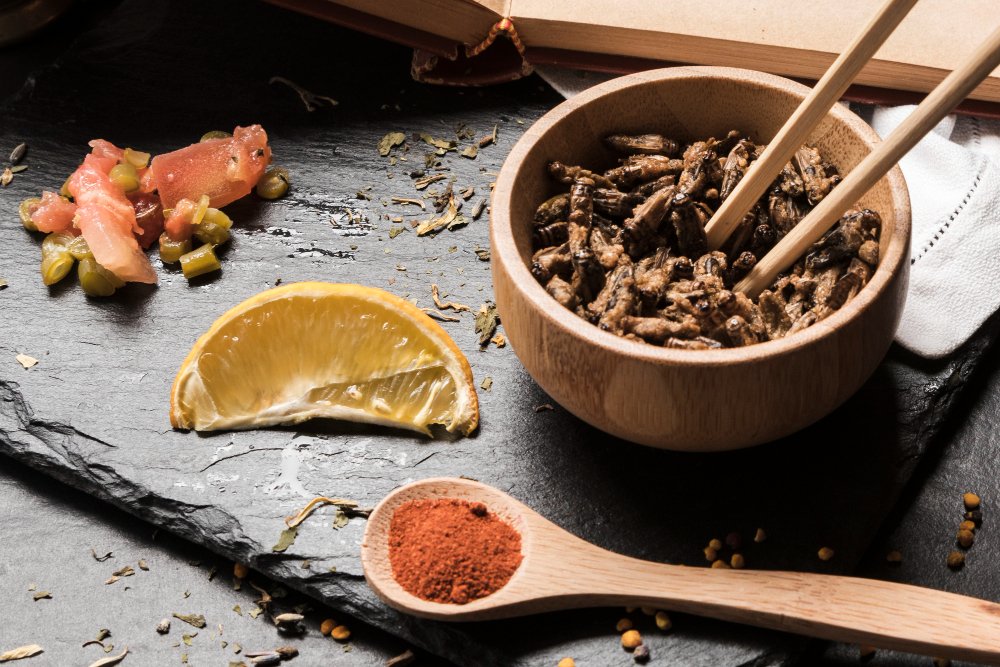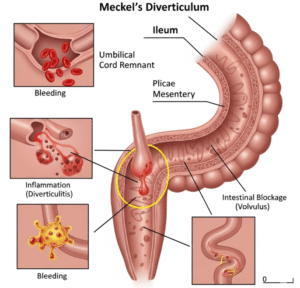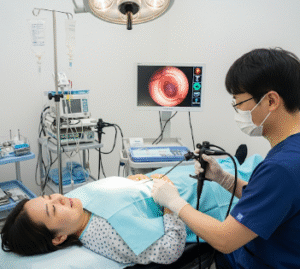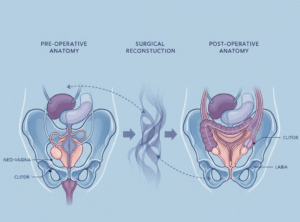Digestive health has always held a central place in Korean traditional medicine (Hanbang, 한방). In Korea’s holistic healing philosophy, the stomach and intestines are considered the foundation of vitality — where nourishment, energy (Qi), and balance begin. When the digestive system is weakened, it can affect not just physical health but also mood, immunity, and energy flow. For centuries, Koreans have relied on natural herbs, fermented foods, teas, and acupressure techniques to maintain digestive harmony. Today, these traditional remedies are still widely used — often alongside modern medicine — for issues like indigestion, bloating, and fatigue.
The Hanbang View of Digestive Health
In traditional Korean medicine, digestion is governed by the “Spleen-Stomach system” (비위, biwi), which transforms food into energy (Qi and Blood). A weak digestive system can lead to stagnation, poor absorption, and imbalance between cold and heat energies in the body.
➡️ Core beliefs in Hanbang digestive care:
• Balance is key: Both overeating and undereating disturb energy flow.
• Warmth promotes function: Cold foods slow digestion; warmth supports circulation.
• Mind-body connection: Stress, worry, or sadness can weaken the stomach’s energy.
• Prevention over cure: Gentle, regular care maintains long-term gut strength.
✅ Philosophy: The digestive system is not just a mechanical organ — it is the body’s “center,” influencing vitality, clarity, and emotional stability.
Common Digestive Ailments and Their Causes
Traditional medicine classifies digestive discomforts into patterns rather than diseases. Each pattern has its own remedies and dietary recommendations.
➡️ Typical imbalances include:
• Food stagnation: Caused by overeating, fast eating, or greasy foods.
• Cold stomach: From consuming iced drinks or raw foods, leading to bloating and fatigue.
• Heat in the stomach: Results from spicy foods, alcohol, or stress, causing acid reflux and bad breath.
• Qi stagnation: Emotional tension disrupting digestive rhythm, often linked to bloating or appetite loss.
• Weak spleen and stomach Qi: Leads to low energy, poor appetite, and loose stools.
🌿 Goal: Identify the root imbalance and gently restore harmony through food, herbs, and lifestyle adjustments.
Herbal Remedies for Better Digestion
Korean herbal medicine offers numerous remedies made from roots, seeds, and medicinal plants that naturally support the digestive system. These formulas are often customized by Hanui-sa (traditional doctors) depending on the individual’s constitution.
➡️ Popular herbs and their functions:
• Ginger (Saenggang, 생강): Warms the stomach, relieves nausea, and enhances circulation.
• Licorice root (Gamcho, 감초): Soothes the stomach lining and harmonizes other herbs in formulas.
• Cinnamon (Gyepi, 계피): Stimulates appetite and relieves abdominal cold.
• Atractylodes (Baekchul, 백출): Strengthens the spleen and supports nutrient absorption.
• Jujube fruit (Daechu, 대추): Calms the mind, boosts energy, and improves digestion.
• Ginseng (Insam, 인삼): Increases vitality and supports overall gut function.
• Perilla leaf (Kkaennip, 깻잎): Helps with nausea and bloating after heavy meals.
• Citrus peel (Jinpi, 진피): Regulates Qi flow and reduces gas.
💧 Traditional formulas: Herbal decoctions like Bojungikgi-tang (보중익기탕) and Samchulgunbitang (삼출건비탕) are prescribed to strengthen weak digestion, improve metabolism, and combat chronic fatigue.
✅ Modern insight: Many of these herbs have anti-inflammatory and antioxidant properties that promote gut motility and microbial balance.
Fermented Foods: The Probiotic Powerhouse
Fermentation is deeply rooted in Korean culinary culture — and it’s one of the reasons Koreans have maintained excellent digestive health for generations.
➡️ Key fermented foods for gut health:
• Kimchi: Packed with probiotics like Lactobacillus, which enhance intestinal health and boost immunity.
• Doenjang (soybean paste): A rich source of beneficial bacteria and enzymes that aid digestion.
• Gochujang (chili paste): Improves gut flora balance when consumed in moderation.
• Makgeolli (fermented rice drink): Contains natural yeasts and amino acids beneficial for digestion.
🥢 Daily habit: Koreans eat fermented side dishes with nearly every meal, supporting gut balance naturally without the need for supplements.
Medicinal Teas for Digestive Relief
Herbal teas play an important role in everyday preventive care. They’re gentle, soothing, and help the stomach process food more efficiently.
➡️ Popular Korean teas for digestion:
• Barley tea (Bori-cha, 보리차): Calms the stomach, cools internal heat, and aids hydration.
• Ginger tea (Saenggang-cha, 생강차): Promotes warmth, circulation, and digestion after meals.
• Jujube tea (Daechu-cha, 대추차): Restores energy and soothes the stomach during stress.
• Cinnamon tea (Gyepi-cha, 계피차): Relieves bloating and gas.
• Omija tea (Five-flavor berry, 오미자차): Balances body fluids and improves appetite.
• Licorice root tea (Gamcho-cha, 감초차): Soothes the digestive tract and supports liver detoxification.
🌸 Tip: These teas are often enjoyed after heavy or late meals to prevent bloating and fatigue.
Acupressure and Massage for Digestive Flow
In Korean traditional healing, stimulating specific points on the body can regulate Qi and enhance digestive movement.
➡️ Common self-massage or acupressure techniques:
• Abdominal massage (Bokbu-masaji, 복부마사지): Gently rubbing the abdomen clockwise helps relieve bloating and constipation.
• Hegu point (between thumb and index finger): Pressing this point can ease nausea and stomach pain.
• Zusanli point (below the knee): Known to strengthen digestion and boost energy.
• Hand acupuncture (Sujichim): Stimulating points on the palm connected to the stomach can aid mild indigestion.
💆 Benefit: These techniques not only relieve discomfort but also reduce stress — a major factor in digestive imbalance.
Diet and Lifestyle According to Hanbang Principles
Korean traditional medicine emphasizes that how you eat is just as important as what you eat. Mindful eating and regular habits support the digestive fire and prevent imbalance.
➡️ Healthy digestive habits:
• Eat meals at regular times — avoid skipping or overeating.
• Chew slowly to aid breakdown and absorption.
• Favor warm, cooked meals over cold or raw foods.
• Avoid excessive spicy, oily, or processed foods.
• Manage stress through deep breathing or meditation.
• Sleep early — digestion is most active before midnight.
🍲 Traditional wisdom: “A calm stomach makes a calm mind.” Good digestion supports mental clarity and emotional peace.
Modern Integration: Hanbang Meets Science
Korea’s integrative healthcare system blends traditional remedies with modern diagnostics, offering patients personalized treatments for digestive health. Hospitals often include traditional medicine departments where patients receive herbal prescriptions, acupuncture, or cupping alongside diet counseling.
➡️ Examples of integration:
• Using herbal medicine post-antibiotic treatment to restore gut balance.
• Combining acupuncture with dietary therapy for irritable bowel syndrome (IBS).
• Monitoring gut microbiome changes in patients using fermented diets.
• Applying AI analysis to tailor herbal combinations based on digestive patterns.
✅ Result: Patients benefit from both worlds — the precision of science and the holistic care of Hanbang.
Final Thoughts
From herbal tonics and teas to fermented foods and mindful eating, Korean traditional remedies for digestive health offer a time-tested roadmap for balance and vitality. They remind us that good digestion isn’t just about food — it’s about harmony between body, mind, and lifestyle.
By nourishing the gut with warmth, rhythm, and natural care, these ancient Korean practices continue to prove that prevention truly is the best medicine.
✨ In Korea’s healing philosophy, the stomach is the “root of life” — when it’s balanced, the whole body flourishes.













